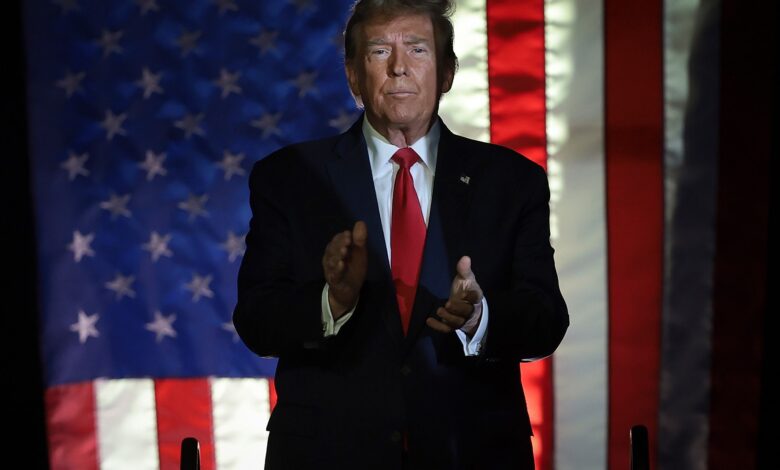The Supreme Court Can’t Stop Doing Solids for Donald Trump

When he’s not feuding with Taylor Swift or claiming to look like Elvis Presley, Donald Trump spends most of his days raging about how various government officials—often prosecutors but sometimes also former presidents and his own Cabinet members—have wronged him. But on Monday, he was full of praise for nine DC regulars, i.e. the Supreme Court, for ruling that states can’t remove him from the ballot despite the coup that he attempted just over three years ago.
Speaking from Mar-a-Lago after the decision came down, Trump commended the justices for working “long,” “hard,” and “very quickly on something that will be spoken about 100 years from now and 200 years from now, [something] extremely important.” Later, referring to the unanimous decision, he said he was “very honored by a nine-to-nothing vote.” Not only did the Court allow Trump to remain on the ballot in Colorado, which had disqualified him, but five members of the majority ensured it will be very difficult to prevent other would-be insurrectionists from running for president in the future.
Per The Washington Post:
The justices drew a clear distinction between state and national elections, writing that “States may disqualify persons holding or attempting to hold state office. But States have no power under the Constitution to enforce Section 3 [of the 14th Amendment] with respect to federal offices, especially the Presidency.” Five of the six conservative justices went further, writing that the disqualification clause can only be enforced for national office through federal legislation—not a federal court challenge or non-legislative action by Congress.
The three liberal justices, in their sharply worded concurrence, said the majority’s approach “shuts the door on other potential means of federal enforcement. We cannot join an opinion that decides momentous and difficult issues unnecessarily.” The majority, they said, had foreclosed enforcement through the courts if, for instance, “a party is prosecuted by an insurrectionist and raises a defense on that score.”
In their concurring opinion, justices Sonia Sotomayor, Elena Kagan, and Ketanji Brown Jackson criticized the majority for “attempt[ing] to insulate all alleged insurrectionists from future challenges to their holding office.” Even conservative justice Amy Coney Barrett agreed, but didn’t join the liberals’ opinion because she didn’t like their tone. (She separately commented that the suit the Court was being asked to weigh in on “did not require us to address the complicated question of whether federal legislation is the exclusive vehicle through which Section 3 can be enforced.”)
Monday’s ruling was, of course, not the only one the Supreme Court is expected to make this term that concerns Trump and, basically, the fate of democracy. Next month, it will hear arguments concerning the former guy’s claims of immunity, which he hopes will result in the justices agreeing that presidents cannot be held responsible for their actions. As he has claimed in the past, Trump wrote on Truth Social today that unless presidents have total immunity from the law both while in office and after, they “will always be concerned, and even paralyzed, by the prospect of wrongful prosecution and retaliation, after they leave office. This could actually lead to extortion and blackmail of a President.… A President must be free to make proper decisions. His mind must be clear, and he must not be guided by fear of retribution!”
While it would be truly shocking—and seemingly unlikely—for the Court to side with Trump’s absurd immunity claims, as my colleague Eric Lutz noted last month, the justices have already given the ex-president a win by (1) agreeing to hear the case and (2) scheduling arguments for late April, which will delay his federal election-subversion case until who knows when. So the only question now is how big of a gift they want to give him next.


